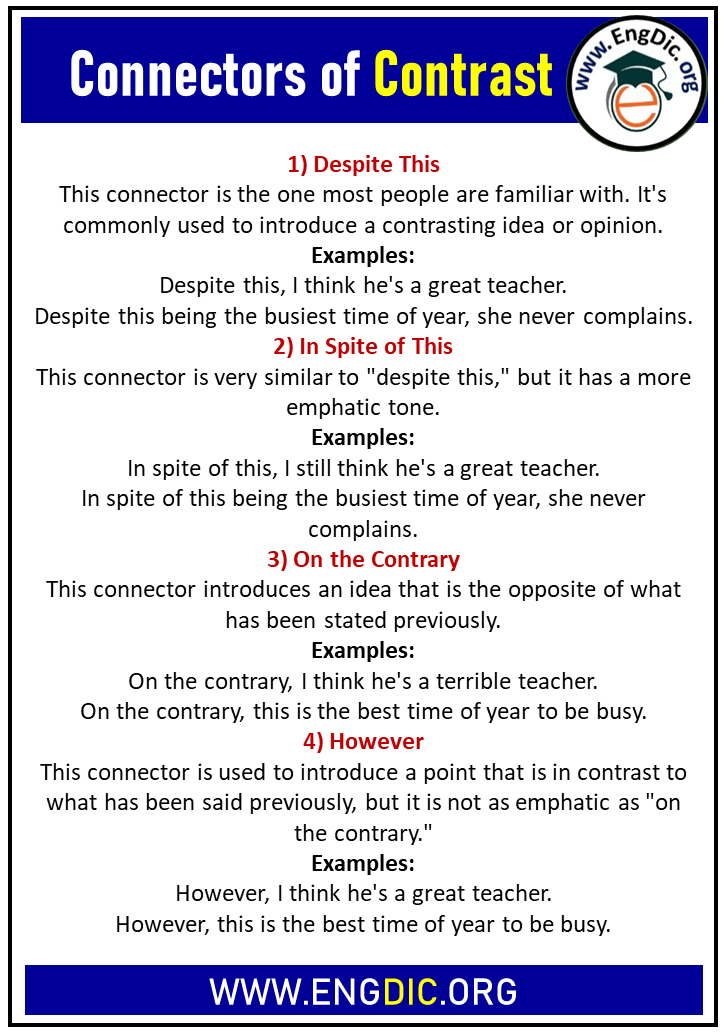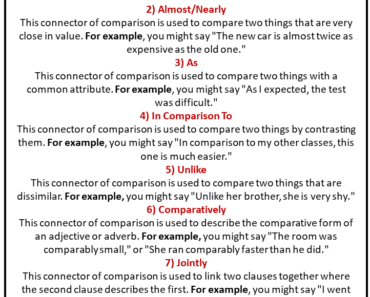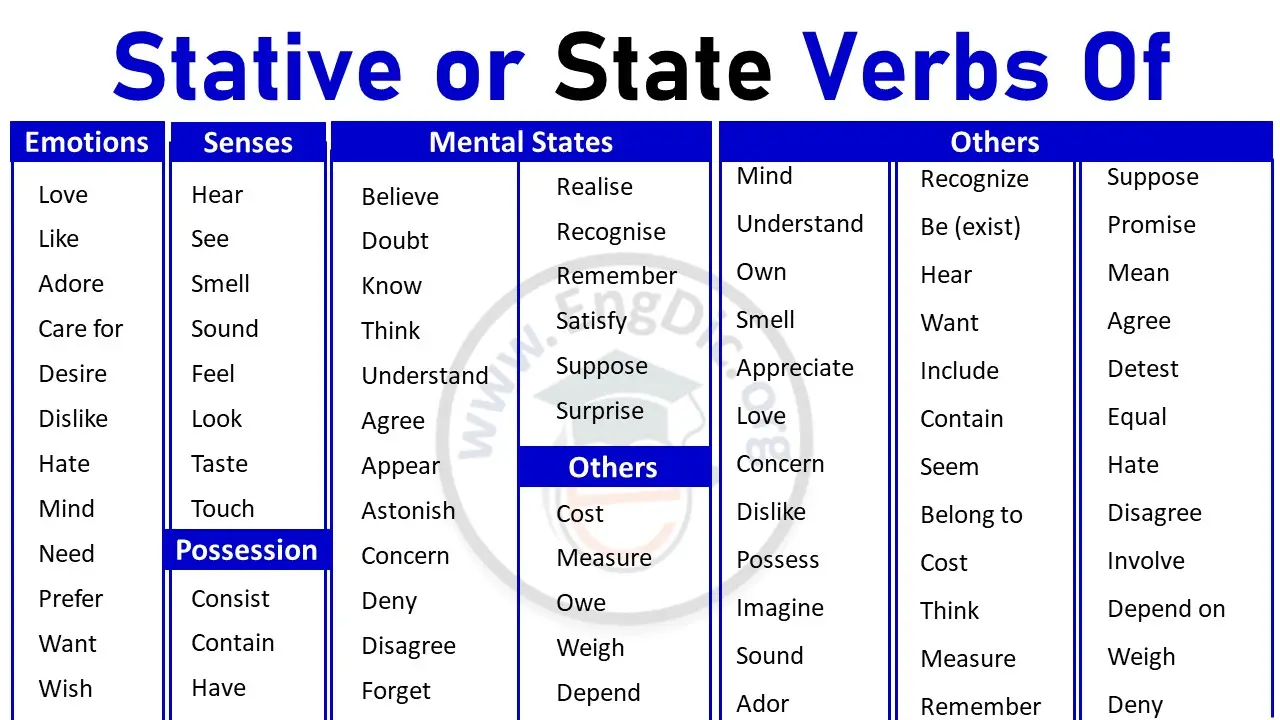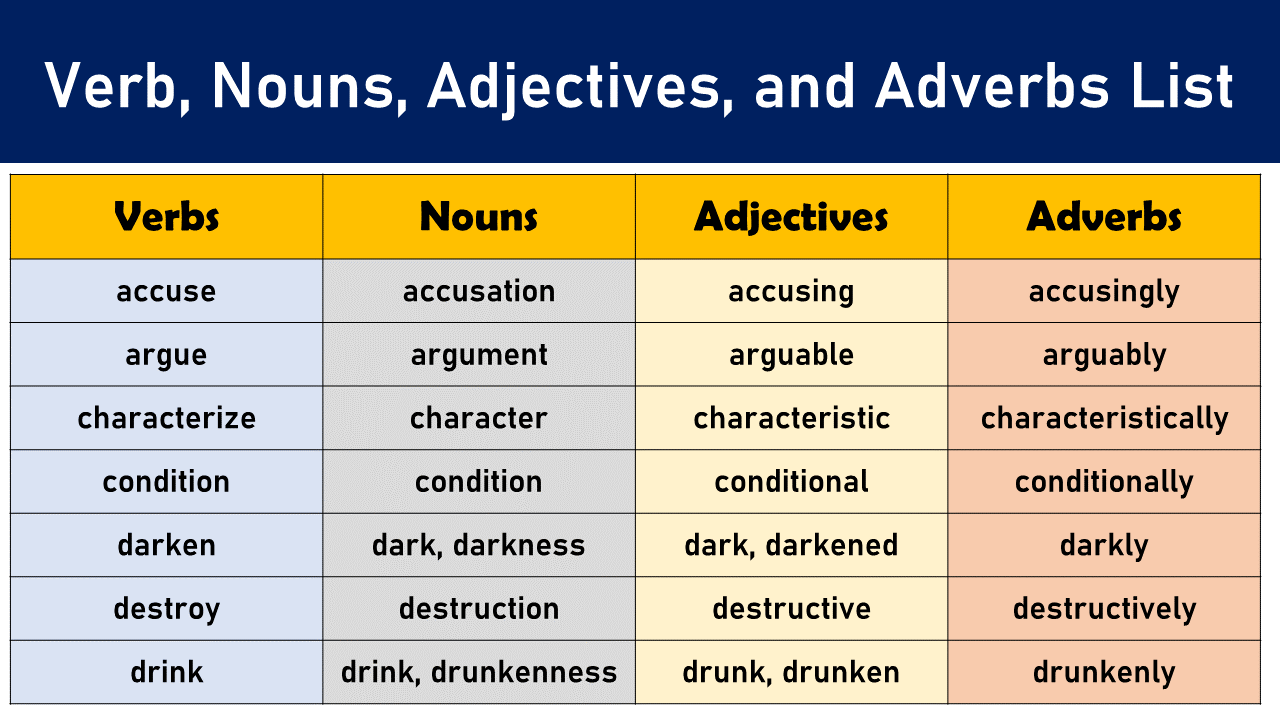Connectors of Contrast (Definition and Example Sentences)

The world is a colorful place, full of different people and cultures. Each person has their own unique story to tell, and within those stories are countless connections.
Connectors are words that link these stories together, bridging the gap between disparate ideas.
In this blog post, we’ll explore the definition of connectors of contrast and provide some example sentences. Let’s get started!
Detailed List of Connectors of Contrast
1) Despite This
This connector is the one most people are familiar with. It’s commonly used to introduce a contrasting idea or opinion.
Examples:
- Despite this, I think he’s a great teacher.
- Despite this being the busiest time of year, she never complains.
2) In Spite of This
This connector is very similar to “despite this,” but it has a more emphatic tone.
Examples:
- In spite of this, I still think he’s a great teacher.
- In spite of this being the busiest time of year, she never complains.
3) On the Contrary
This connector introduces an idea that is the opposite of what has been stated previously.
Examples:
- On the contrary, I think he’s a terrible teacher.
- On the contrary, this is the best time of year to be busy.
4) However
This connector is used to introduce a point that is in contrast to what has been said previously, but it is not as emphatic as “on the contrary.”
Examples:
- However, I think he’s a great teacher.
- However, this is the best time of year to be busy.
5) Nonetheless
This connector is used to introduce a point that still stands, even though it may be in contrast to what has been said previously.
Examples:
- Nonetheless, I think he’s a great teacher.
- Nonetheless, this is the best time of year to be busy.
6) Notwithstanding
This connector is very formal and rarely used, but it has the same meaning as “nonetheless.”
Examples:
- Notwithstanding, I think he’s a great teacher.
- Notwithstanding, this is the best time of year to be busy.
7) On the Other Hand
This connector introduces an idea that is in contrast to what has been stated previously, but it is more balanced than “on the contrary” or “notwithstanding.”
Examples:
- On the other hand, I think he’s a terrible teacher.
- On the other hand, this is the worst time of year to be busy.
8) Nevertheless
This connector is used to introduce a point that still stands, even though it may be in contrast to what has been said previously.
Examples:
- Nevertheless, I think he’s a great teacher.
- Nevertheless, this is the best time of year to be busy.
9) In Contrast
This connector introduces an idea that is in direct opposition to what has been stated previously.
Examples:
- In contrast, I think he’s a terrible teacher.
- In contrast, this is the worst time of year to be busy.






